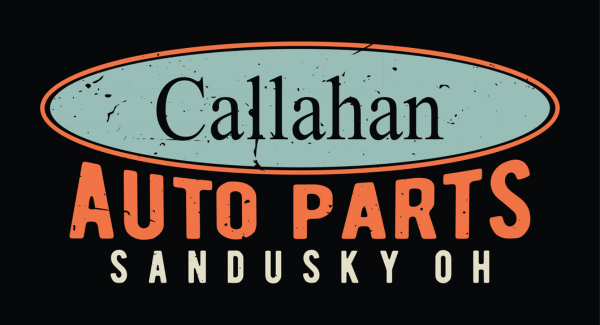I have always liked Chris Farley and, in particular, his movie Tommy Boy. I have it recorded, but I seem to watch parts of it whenever I am channel surfing and catch it on. Recently, I decided to watch it from the beginning, and a scene caught my attention that provided the inspiration for this blog.

The scene was Chris in the role of Tommy sitting dejectedly with a shot of the Callahan Auto Parts sign over some trucks in a loading bay. It hit me that this business had just lost its leader and was in jeopardy of continuing. I have since thought about this as an illustration of too many situations I’ve seen where many of the problems could have been avoided – not all, but many.
For starters, the owner, Thomas R. “Big Tom” Callahan Jr., had an oversized personality that helped propel its success. The company had a great brand and quality reputation backed by consistent performance, advertising, excellent employee relations, and business culture. What it did not have was a succession plan or a strong number two assisting Big Tom in running the company. There was a very loyal and competent executive assistant and a sales manager. Big Tom’s son, Tommy, played by Chris Farley, was a pampered, fun-loving son who was never given any responsibility or training. To exacerbate the situation, Big Tom’s second wife intended to cheat him out of his money, and Big Tom had a fatal heart attack during the wedding party.
It is not unusual for privately owned businesses to have bank loans. There are various types of loans to privately held businesses. Loans can capitalize the company without the owner providing the entire funding. These loans primarily have long-term repayment periods with monthly payments over a five-to-eight-year period, with the payments made on a lower base and with the full remaining balance, called a balloon payment, then due. These loans are usually refinanced for another five to eight years. A second type of loan is to finance equipment purchases, typically repaid over a five-year period with self-liquidating payments similar to a home mortgage. A third type of loan is for working capital. This is due annually and is usually refinanced year after year.
In the normal course of business, most loans that need to be refinanced usually are. Obstacles to refinancing include a deteriorating financial situation or major changes in the operations or structure of the business. Big Tom’s sudden death, without an obvious successor to continue operating the company, falls in the latter category. This makes the situation Tommy finds himself in even worse.
On top of all of this, the company was expanding into a new product, manufacturing brake pads, which the bank was being relied upon to finance. At the funeral, the bank tells Tommy they are terminating that agreement and want the company’s other debts to be resolved immediately. Tommy pledges his company shares and house as collateral to the bank in exchange for time to secure advance orders for 500,000 brake pads and prove the business’s future viability.
Chris Farley – as Tommy – goes through many gyrations and embarks on a cross-country road trip to try to secure the needed 500,000 brake pad sales. Richard Hayden (played by David Spade) accompanies Tommy on the road trip. Richard was Big Tom’s Executive Assistant and seems to not care much for Tommy. However, he knows as much as anyone about the business and does his best to keep Tommy focused, which isn’t easy! Tommy has an ally in Michelle Brock (played by Julie Warner), a high school classmate of Tommy’s who is the sales manager. Michelle knows all the customers and does what she can to encourage Tommy.
Tommy goes to many customers and finds it hard to make any new sales. Big Tom is no longer running the show, Tommy is untested, and the brake pads are a new product. Tommy tries acting like his father, but that doesn’t cut it. He begs for sales and says whatever he thinks will work, but nothing seems to resonate with his potential customers. At some point, Richard notices Tommy’s ability to read people and suggests he use his instincts rather than trying to mimic his dad.
While Tommy is roaming the country for sales, Big Tom’s widow, who inherited a controlling interest in the company, wants to make a quick sale for cash. She offers it to Zalinsky Auto Parts, a major competitor. Zalinsky is interested in buying Callahan because of its name, brand, and reputation. However, Zalinsky plans to close Callahan and lay off all its workers. There is a conflagration of events (after all it is a movie!), and with Michelle’s help, Tommy ends up proving Big Tom’s widow to be a bigamist and fraud. He gains the support of his employees and has Zalinsky agree to purchase 500,000 brake pads to sell in his stores. Tommy ends up rightfully inheriting his father’s shares, the bank provides the funding, and he starts a romantic relationship with Michelle.
A caveat here for people getting married (and especially for a second time when they have a child or children working in their business) is to consider how control would pass should they die prematurely.
Tommy Boy is an entertaining movie with a lot of silliness created by Chris Farley. Still, there is an undercurrent of many lessons that could be learned to hone entrepreneurial skills. Watch it, enjoy it and perhaps learn something about running a business.
My Memoirs of a CPA book has many stories of my experiences as a CPA and includes many things my partners and I did when we ran and grew our CPA business. You should read that book in addition to watching Tommy Boy.
Contact Me
If you have any tax, business, financial or leadership or management issues you want to discuss please do not hesitate to contact me.



